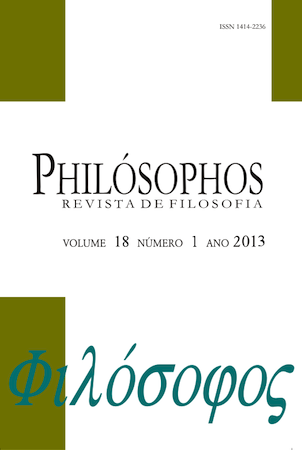DO ORDINARY PSYCHOLOGICAL CATEGORIES REFER TO INNER CAUSES OF BEHAVIOR?
DOI:
https://doi.org/10.5216/phi.v18i1.20560Keywords:
Psychological categories, Causal theory of the mind, Behavior, Behaviorism.Abstract
Armstrong and Lewis' account of ordinary psychological concepts is couched in terms of a synthesis between behaviorism and Cartesianism. Their approach supports fundamentally two theses, viz.: (a) that such concepts explain and predict behavior by referring to inner (i.e., proper of the inside body) entities that occupy the relevant roles of bringing it about; and (b) that the occupiers of these roles are identical with brain entities and, eventually, inner substrata of other physical constitution, in the sense of type-type (rather than token-token) identities (though with qualifications). On the one hand, this approach opposes the idea that such concepts do not refer to inner causes; but, on the other, it proposes a sort of materialistic view, and conceives of them as having logical connections with behavioral relations of the organism as a whole with aspects of the larger environment. The present work aims at suggesting that (1) this approach is not plausible, by presenting it several objections; and also that (2) Armstrong and Lewis' criticisms of behavioral perspectives do not touch at least a particular one, which is here sketched (though briefly) and favored.Downloads
Downloads
Published
How to Cite
Issue
Section
License
Authors who publish in this journal agree to the following terms:
- Authors retain copyright and grant the journal right of first publication, with the work simultaneously licensed under a Creative Commons Attribution License that allows others to share the work with an acknowledgement of the work's authorship and initial publication in this journal.
- Authors are authorized to enter into separate, additional contractual arrangements for the non-exclusive distribution of the journal's published version of the work (e.g., publishing in an institutional repository or as a book chapter), with an acknowledgement of its authorship and initial publication in this journal.















